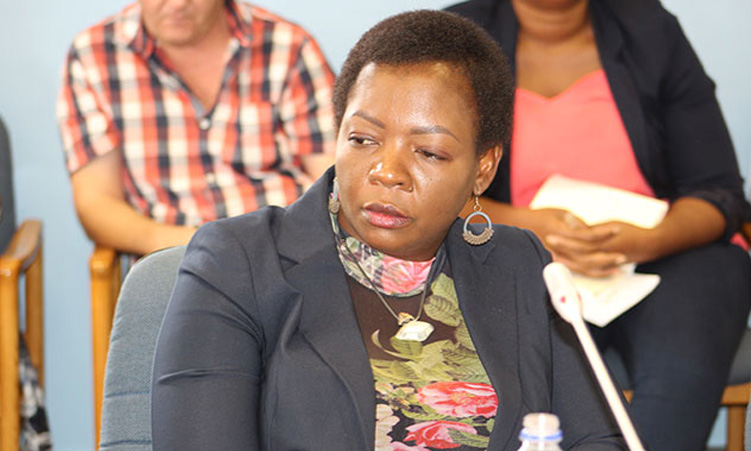The Namibia Students Financial Assistance Fund (NSFAF) board of directors had a valid and fair reason for dismissing the fund’s former chief executive Hilya Nghiwete in 2020, the Supreme Court has ruled.
The court made the finding in a judgement in which Nghiwete’s appeal against a judgement delivered in the Labour Court in September 2022 was dismissed on Friday.
Nghiwete and NSFAF both appealed against the Labour Court’s judgement. The Supreme Court dismissed Nghiwete’s appeal, but upheld NSFAF’s appeal.
The court set aside the Labour Court’s finding that NSFAF dismissed Nghiwete without a fair and valid reason and without following a fair procedure.
The Supreme Court also set aside the Labour Court’s order that the fund had to pay to Nghiwete the monthly remuneration she would have received from February 2020, when she was dismissed, until 15 July 2021, which was when a labour arbitrator ruled that her dismissal had been unfair and ordered that the fund should reinstate her in the position of NSFAF chief executive.
Nghiwete, who became NSFAF’s chief executive in March 2013, continued to receive her monthly remuneration of about N$185 000 while she was suspended and until the Labour Court gave its judgement in September 2022.
Appeal judge Elton Hoff, who wrote the Supreme Court’s judgement, concluded there was overwhelming evidence showing that the relationship of trust between Nghiwete and the fund had irretrievably broken down before she was dismissed. Nghiwete was the cause of the breakdown in the employment relationship, Hoff said. The fund had shown it had a valid and fair reason to dismiss her, after Nghiwete frustrated the continuation and conclusion of a disciplinary hearing in which she was charged, Hoff also found. By frustrating the continuation and conclusion of her disciplinary hearing, Nghiwete benefited because she continued to receive her monthly salary, Hoff noted.
He also noted that senior NSFAF staff members and a former NSFAF board chairperson who testified during Nghiwete’s labour arbitration hearing described their relationship with Nghiwete as “unbearable”, “acrimonious”, “disruptive and uncooperative”, and as lacking trust.
Since Nghiwete was fit enough to travel to Finland for private business after a psychologist booked her off for three months when her disciplinary hearing was scheduled to continue in January 2020, it can reasonably be inferred that she was pretending to be ill, Hoff remarked.
In the Labour Court, judge Herman Oosthuizen found that Nghiwete’s dismissal as chief executive of the fund, before the conclusion of a disciplinary hearing in which she was charged, was unfair and without a valid reason. Oosthuizen also found that the employment relationship between the fund and Nghiwete had been non-existent since April 2018, when she was suspended as chief executive.
Given the nature of the soured relationship between Nghiwete and NSFAF, the labour arbitrator’s order for her reinstatement was not reasonable, Oosthuizen found as well.
Deputy chief justice Petrus Damaseb and acting judge of appeal Hannelie Prinsloo agreed with Hoff’s judgement. Senior counsel Andrew Corbett and Karin Klazen represented NSFAF in the appeal.
Nghiwete was represented by Sisa Namandje and Nelao Shilongo-Alexander.
Stay informed with The Namibian – your source for credible journalism. Get in-depth reporting and opinions for
only N$85 a month. Invest in journalism, invest in democracy –
Subscribe Now!









